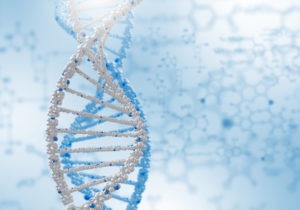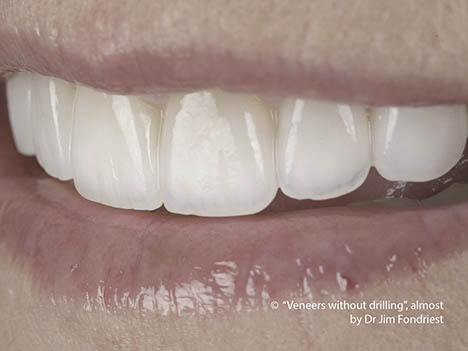
Does weak enamel run in families? Tooth enamel is the hardest substance in your body. It protects your inner tooth (the dentin and pulp) from decay. Mature enamel consists of 96 percent minerals, 3 percent water, and 1 percent organic material. It is hard and tough, yet decay or caries remains a chronic disease in this country. Caries begins on the surface of the tooth enamel and is caused by pathogenic bacteria. As these bugs feed off of sugars and food residue remaining on the tooth surface they release acids that dissolve the enamel. There are conflicting research reports on this. Research indicates that the rate of caries is caused by not only dental hygiene and nutrition but by genetics as well.
The American Dental Association Research
According to the ADA only about one percent of the adult population is immune to decay. Therefore, the rest of us need to diligently care for our teeth. Tooth decay is difficult to avoid, as is the common cold. We try to avoid cavities by regularly removing the naturally produced plaque layer that forms on your teeth. Plaque is a mixture of resident harmful bacteria and food debris. If we remove this plaque by brushing our teeth twice a day and flossing daily, we can avoid cavities. The dental organization says, weak enamel or not, good hygiene is the best way to prevent problems.
Do genes cause weak enamel?
Some people do seem to be more immune to cavities. A study published in the Journal of Clinical Investigation analyzed genetic and intraoral data from nearly 400 children and 700 adults. It was found that keratins, which are proteins associated with the strength of hair shafts, are linked to dental caries. Individuals with mutations in certain hair keratin genes were prone to higher rates of dental caries due to weakened enamel.
Tooth analysis of individuals that carried a variant of one of the keratin genes showed a reduction of enamel hardness and an altered enamel structure. Results of the study indicated that abnormal keratin gene structure associated with hair disorders may also be a major factor in the development of caries. It compromises the integrity of the tooth enamel.
The Genetics of Tooth Decay
An astonishing 60 percent of tooth decay risk may be related to genetics. This is according to Dr Mary Marazita, director of the Center for Craniofacial and Dental Genetics at the University of Pittsburgh School of Dental Medicine. Her interview appeared in a 2014 article in CNN. She described five factors that are genetically related to decay.
Preference for sweets:
Our diets play an important role in oral health. People who refrain from sugary and processed foods tend to have lower rates of tooth decay and gum disease. Sugary foods and drinks cause higher levels of acidity in the mouth. This will directly lead to erosion of enamel. Our preference for sweets is partly informed by certain gene variants. So is a preference for acidic foods. Acids in prolonged contact with the surfaces of the teeth will cause enamel erosion.
 Enamel strength:
Enamel strength:
Our genes determine our height, hair color, tooth color, and yes, enamel size and strength. The hardness of enamel varies from person to person, and most of that variation can be attributed to our genes. Weak enamel does run in families but it plays only a very minor part in getting cavities. Certainly you should ask your dentist about fluoride treatments for your children and what toothpaste you should use.
Enamel hypoplasia is a failure of the outside layer of your teeth to fully mineralize during the development. This can occur in both baby and adult teeth. These teeth are more prone to decay.
Taste ability:
Most of us may not be familiar with the term “taste ability”. Scientists use the term to describe an person’s ability to discern unique flavors. For example, some people perceive cilantro as tasting like soap, due to a specific gene. Our taste ability is shaped by genetics, and it largely informs the type of diet we choose.
Saliva:
Saliva plays an important role in preventing tooth decay by aiding in the uptake of minerals in weak enamel. Some individuals have saliva that is better suited to aiding in this process. Variations in saliva can be attributed to genetics. An excellent way to increase saliva flow is to chew gum sweetened with xylitol.
Microbes:
Microbial ecology is a field of study that examines how bacteria impacts our physical and oral health. Bacteria in the mouth can actually aid in maintaining oral health. This depends on the types of bacteria that grow in your mouth. Genetics plays an important role in determining which microbes live on your teeth and gums.
While the role of genetics is hard to overstate, the CNN article noted that good oral hygiene habits play a large role also. Good hygiene habits like brushing, flossing, and visiting your dentist for cleanings and exams are also critical to preventing cavities. If your family has a history of cavities, you may be more likely to develop cavities. During your visit with Dr. Fondriest, you can ask about the role genetics play in your dental health. Patients who have softer enamel may benefit from more frequent cleanings. Dental sealants and fluoride treatments can also help.
Learn more about weak enamel and the genetics of getting cavities
Dr. Fondriest can offer you and long term plan based on your unique tooth characteristics. Remember, genetics are one factor, not the factor when it comes to maintaining good dental health. We urge you to look past your genes and start good cavity prevention habits.
To schedule a consultation, call our office today at (847) 234-0517.

 Enamel strength
Enamel strength